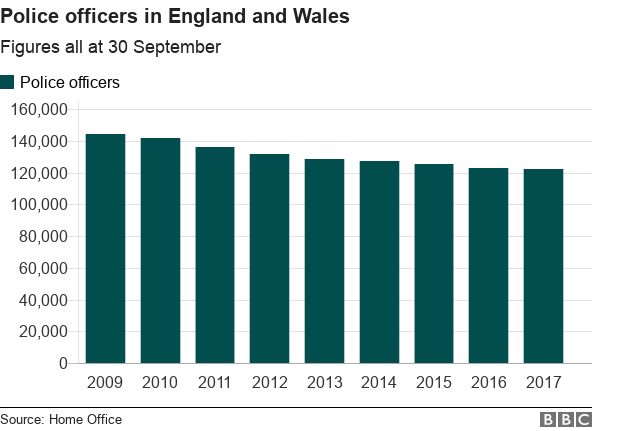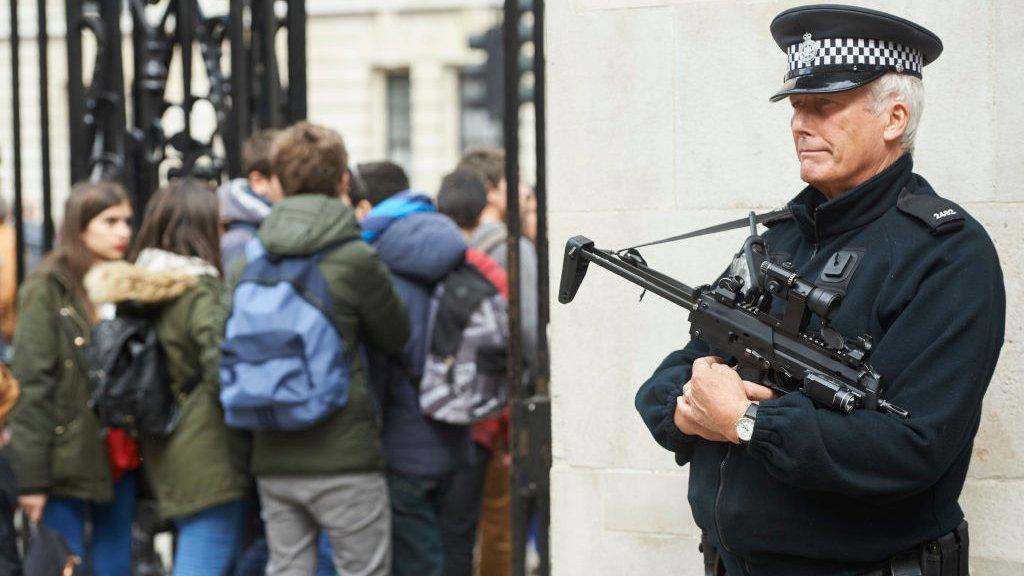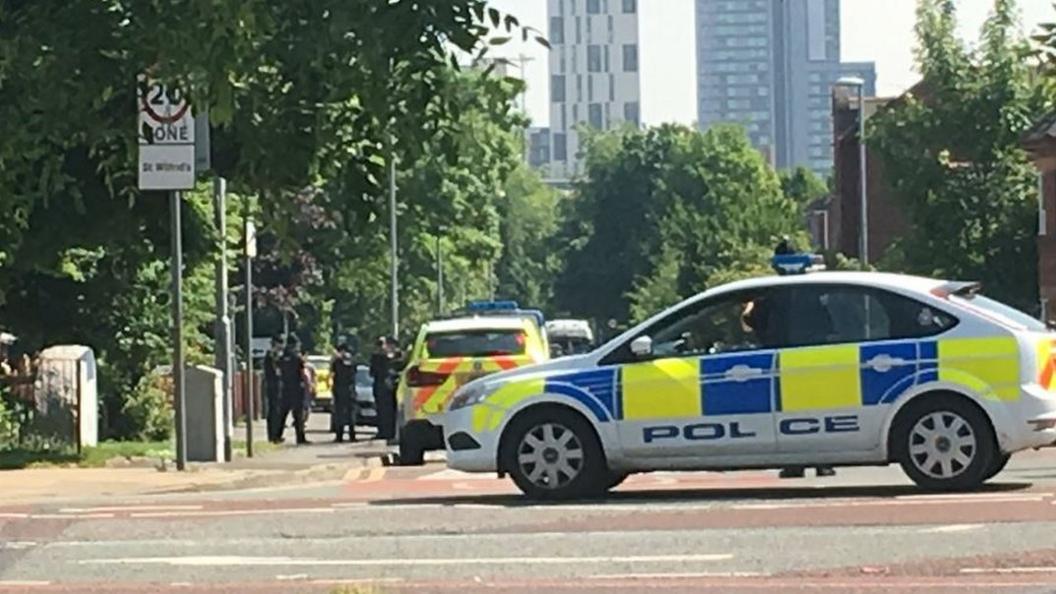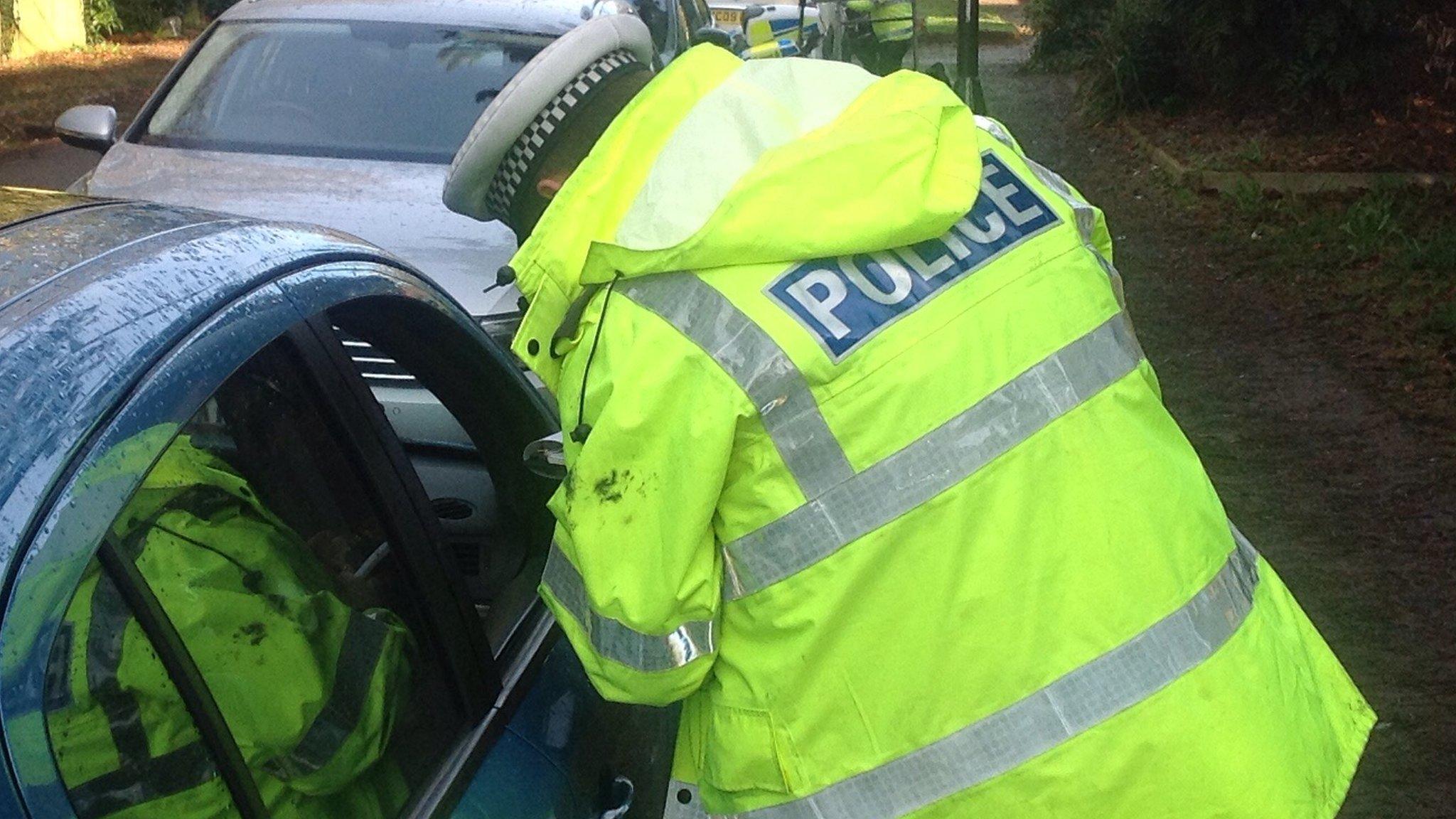Reality Check: What has happened to police numbers?
- Published

The claim: There are 21,000 fewer police officers.
Reality Check verdict: That's about right - under the Conservative and coalition governments, the number of police officers has fallen by somewhere between 19,000 and 22,000.
What's happening to policing and crime is a regular topic at Prime Minister's Questions, when Labour leader Jeremy Corbyn goes head-to-head with Theresa May.
Mr Corbyn asked: "With crime rising, does the prime minister regret cutting 21,000 police officers?"
Whether crime is rising or not is harder than you might imagine to determine. There's good evidence that certain types of violent crimes are rising but the overall amount of crime people report experiencing is falling.
As of September 2017, there were 121,929 police officers in England and Wales, the lowest number in at least 20 years - policing in Scotland and Northern Ireland is a devolved issue.
The latest figures show that between September 2010 and September 2017, the number of police officers in English and Welsh forces fell by 19,921 or 14%, according to the Home Office, external.
Since September 2009 - the last set of figures before the Conservatives came into government in coalition with the Liberal Democrats - there's been a cut of 22,424 police officers.
Numbers of police community support officers (PCSOs), who patrol the streets, have fallen by almost 40% during this period.

As of March 2017, there were 6,278 authorised firearms officers in England and Wales, down from 6,976 in March 2010.
The National Police Chiefs' Council (NPCC) says plans are in place to bring the number of armed police back up to about 7,000 this year. This is only partly funded by government - forces must find some of the cash themselves.
Elsewhere in the UK, police numbers in Scotland have risen more or less continuously for the past 30 years while in Northern Ireland there has been a smaller decrease since 2010 than in England and Wales.
Overall police budgets, excluding counter-terrorism grants, fell by 20% between 2010 and 2015. Since 2015, the overall policing budget has been protected in real terms, but not every force will benefit.
Over the same period, the ring-fenced counter-terrorism grant has been rising in line with inflation.
The NPCC does not disclose counter-terrorism police officer numbers but there has been a large increase in counter-terrorism spending since a specific grant was introduced in 2001-02.
How this grant is shared out across police forces has not been made public in recent years for security reasons but the Metropolitan Police force is the national lead on counter-terrorism and is likely to receive a significant share.
In autumn 2015, the then Chancellor George Osborne promised to spend £3.4bn extra on counter-terrorism - an increase of 30% - over the following five years. This was to be allocated to several different agencies working on counter-terrorism, not just police forces.
Counter-terrorism policing operates as a network with bases across the UK and resources, including officers and other staff, can be allocated where the need is greatest.



- Published21 June 2017

- Published26 May 2017

- Published2 May 2017

- Published2 March 2017
